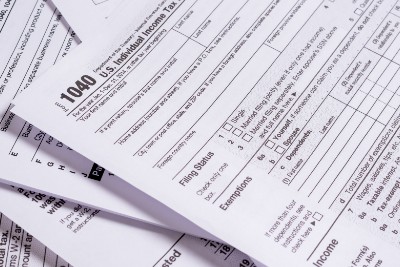
Benjamin Franklin famously noted that “in this world, nothing is certain except death and taxes.” He never said those two certainties needed to go hand in hand. That came later with the imposition of the death tax, also known as the estate tax.
The federal death tax, enacted in 1916, is levied “on the transfer of the taxable estate of every decedent who is a citizen or resident of the United States.” It tends to fall hardest upon farmers and small business owners seeking to pass their assets to the next generation.
Instead of cash, their assets are more likely to be dominated by land, livestock, and equipment. As a result, the heirs of the deceased may have to sell large portions of what they inherited just to pay their tax bill.
I believe this is unfair tax policy that hurts residents of Virginia’s Ninth Congressional District. Throughout my time in Congress, and previously in the state House of Delegates, I have consistently supported efforts to reduce or eliminate entirely the death tax. Earlier this year, I cosponsored H.R. 1712, the Death Tax Repeal Act.
Progress was made in the 2017 Tax Cuts and Jobs Act passed by Republicans in Congress and signed by President Trump. It increased the death tax’s exemption so that its burdens fall on wealthier individuals.
Now a new threat to the ability to pass one’s assets to his or her heirs looms.
President Biden has rolled out numerous plans for turbocharging federal spending. They are a cause for concern because of their wastefulness and misplaced priorities, but also in how the Biden Administration wants to pay for them.
Among President Biden’s proposals for increasing the burden on taxpayers is repealing “stepped-up basis” and taxing capital gains at death. These actions would amount to a second death tax, and like the original death tax, fall hardest upon family-owned farms and small businesses.
Stepped-up basis allows heirs to only pay taxes on the gain in appreciation since the date of inheritance and only applies when the assets are sold. Thanks to this provision, if a family member inherits an asset, such as land or a farm that has been in the family for generations, he or she is not hit with an outlandish tax bill if that asset’s value has risen sharply from when it first came into the family’s possession.
As a state Delegate, I once worked with two elderly gentlemen who were having their property, a mountain in the Ninth Congressional District, logged. They had grown up on this property in cabins without running water or electricity. The property itself came from a king’s grant awarded to their families for services rendered in what I recall to be the French and Indian War, which ended in 1763.
President Biden’s plan would end stepped-up basis and tax the capital gains at death. By the way, his plan also seeks to double the current tax rate for all capital gains. His plan would take a huge chunk of the value of land that had been in the families of those two gentlemen for over 250 years.
I know of many families in Southwest Virginia who would be similarly threatened by death taxes, forcing the sale of their property to developers.
This plan found a place in the Biden tax agenda despite evidence that it would reduce jobs and wages. A study conducted by the accounting firm Ernst & Young for the Family Business Estate Tax Coalition found that these changes could reduce wages by $32 for every $100 in new taxes collected, eliminate 80,000 jobs per year over the first ten years, and eliminate 100,000 jobs per year each year after that.
The resulting damage to the American economy would be a $10 billion annual hit to our gross domestic product, or a total of $100 billion over the next decade.
If enacted, the repeal of stepped-up basis and the imposition of capital gains taxes upon death would be a great administrative weight on the family of the deceased and for those involved in estate planning. They would have to determine the growth in value of an asset since it has been in the family, meaning for some landowners in Southwest Virginia a calculation of inflation and appreciation all the way back to the 1760s.
The costs imposed by a second death tax would be severe, not only in monetary terms, but to the idea that Americans should be able to pass the benefits of their hard work onto their descendants. That’s too high a price to pay for President Biden’s big spending.
If you have questions, concerns, or comments, feel free to contact my Abingdon office at 276-525-1405, my Christiansburg office at 540-381-5671, or website at www.morgangriffith.house.gov.
Morgan Griffith represents the Ninth District of Virginia in the U.S. House of Representatives.










